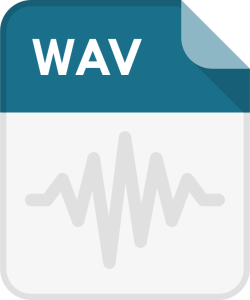Losing important audio files can be a heart-wrenching experience. Whether it’s a cherished recording, a crucial piece of music, or an important voice note, the thought of losing these files can be overwhelming. I’ve been there—accidentally deleting files and feeling that wave of panic. But thankfully, tools like RecoveryFox AI can come to the rescue.
Understanding .wav Files
.wav files are a standard audio file format used primarily on Windows systems. They store audio data in an uncompressed form, which means they retain all the original audio quality but can take up a lot of storage space. Losing these files can be quite distressing, especially if they contain important recordings, music, or other audio data.

The Importance of File Recovery
Losing files can happen for various reasons: accidental deletion, formatting the wrong drive, or even a system crash. When such incidents occur, the emotions can be overwhelming. I remember once accidentally deleting an important recording I made for a project. The sinking feeling in my stomach was unbearable. That experience taught me the importance of having a reliable file recovery tool.
What is RecoveryFox AI?
RecoveryFox AI is a tool designed to help recover lost or deleted files. RecoveryFox AI was developed by WonderFox, a company well-known for its acclaimed video and audio converter.
Step-by-Step Guide: Recovering Your .wav Files
- Download and Install
Head to wonderfoxrecovery.com and download RecoveryFox AI for Windows. Double‑click the installer and follow the prompts—it’s straightforward, even if you’re not a system expert. - Launch the Program
Open RecoveryFox AI and take a moment to breathe. The friendly interface is designed to put you at ease. - Select Location
Choose the drive or location where your .wav files were lost and the Quick Scan will start automatically. - Quick Scan vs. AI Scan
- Quick Scan hunts recently deleted files and takes just a few minutes.
- AI Scan delves into file fragments and can take longer, but it often finds files that slipped through Quick Scan’s fingers.
- Preview Recoverable Files
When the scan finishes or is paused, you’ll see a list of found .wav files. Click any item to hear a short snippet. That moment when you hear the first notes of a long‑lost recording is pure relief.

- Choose a Safe Recovery Location
Always pick a different drive or folder from where you’re recovering. This avoids accidentally overwriting any remaining fragments. - Recover
Click the “Recover” button and let the magic happen. Recovery time depends on file size and scan depth, but knowing your files are coming back is a comfort in itself. - Verify and Back Up
After recovery, open each file to make sure it plays correctly. Then, back up your treasures—consider an external drive and cloud storage.
Tips for Preventing File Loss
While recovery tools are great, it’s always better to prevent loss in the first place. Regular backups are crucial. I’ve learned to keep multiple copies of important files on different devices or cloud storage. It’s a habit that has saved me more times than I can count.
Conclusion
Losing important .wav files doesn’t have to be the end of the world. With the right tools and a bit of patience, you can often recover what you thought was lost forever. And while tools like RecoveryFox AI can be incredibly helpful, it’s always wise to have a backup plan in place.
So, if you ever find yourself in a situation where you’ve lost important audio files, don’t despair. Give RecoveryFox AI a try and see if it can help bring your lost files back to life.